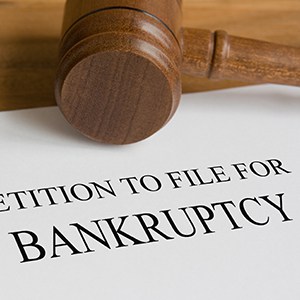 Understanding The Different Chapters Of Bankruptcy
Understanding The Different Chapters Of Bankruptcy
In This Article, You Will Discover…
- The difference between Chapter 7 and Chapter 13 bankruptcy filings.
- When to contact a bankruptcy attorney.
- Which debts are dischargeable in a Chapter 13 bankruptcy.
- And more…
What Is The Difference Between Chapter 7 Bankruptcy And Chapter 13 Bankruptcy?
Chapter 7 is a liquidation of all the debts that you don’t want to keep. Chapter 7 is often better than Chapter 13; however, there are income limits. If you make more than a certain amount, you may not be eligible for Chapter 7, and you may have to resort to Chapter 13.
Chapter 13 is a reorganization in which you pay for secured debts, usually for collateral that you want to keep but are behind on payments for. While Chapter 13 provides assistance with dischargeable debts, there are a few downsides to Chapter 13. One of which is that they last about five years, and a trustee’s fee must be paid each month.
At What Point Do Individuals Generally Contact An Attorney When They’re Considering Bankruptcy?
Many individuals need to contact a bankruptcy attorney sooner. Most people wait until they’re desperate to contact us. Contacting a bankruptcy attorney earlier can ensure that you have the best possible outcome and do not make any avoidable mistakes when trying to rectify the financial situation.
If individuals can only pay their bills after charging them on another credit card or withdrawing from a 401k or something similar, it would be best to reach out to review their situation and options to plan it the best way. If there’s a way to avoid bankruptcy, that can be discussed as well.
How Much Debt Do People Usually Have Before They Realize They Might Have To File For Bankruptcy?
When faced with financial woes, individuals consider the possibility of bankruptcy at varying times. It’s not really a dollar amount; it’s a question of whether it can be manageable. For example, if you only make $20,000 a year, $15,000 in debt may be unmanageable, and you may have no choice but to file bankruptcy.
Likewise, if you make half a million dollars a year, $300,000 in debt may not be unmanageable. It’s really just a question of whether you can service the debt without undue privation. If you can service the debt and stay afloat that way, you don’t need to file bankruptcy, but if you can’t, filing is usually necessary.
What Debts Are Discharged In A Chapter 13 Bankruptcy?
Any debts that are dischargeable are discharged. The bankruptcy code indicates certain debts that aren’t dischargeable, such as child support, alimony, and some taxes. Income taxes have to be a certain age before you can wipe them out in a bankruptcy. Payroll taxes, fraud-based debts, and criminal fines cannot be wiped out.
How Likely Is It To Lose All Assets In A Chapter 13 Bankruptcy?
There’s almost no chance of losing your assets in a Chapter 13 bankruptcy. Before clients file a bankruptcy, all of the details are reviewed to make sure that it’s going to work out the way they envision; we don’t simply file it and put them at risk. If you owe on property, you decide which items you want to keep and then pay for those through Chapter 13. Generally, you don’t lose anything that you don’t agree to lose.
Is There A Chapter 12 Bankruptcy?
There is a Chapter 12 bankruptcy for farmers – this is a slightly more generous version of Chapter 13. With the guidance of a skilled attorney for Bankruptcy Law, we strive to handle your case with care and professionalism in order to provide you with peace of mind. For more information on Bankruptcy Law in Arkansas, an initial consultation is your next best step.
More Information